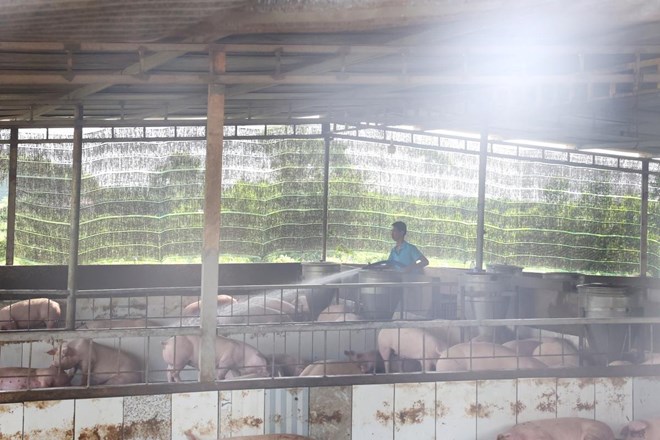The Ho Chi Minh City People's Committee assigned the People's Committees of communes, wards and special zones to proactively direct and mobilize local resources to promptly detect and completely handle animal outbreaks.
The immediate destruction of animals in distress or suspected of being sick is mandatory to prevent the disease from spreading.
The locality must also proactively implement policies to support damaged livestock farmers, inspect, prevent and strictly handle violations such as transporting and trading sick animals, throwing animal carcasses into the environment or slaughtering that do not ensure animal hygiene and food safety.
In addition, localities need to coordinate with specialized agencies to guide people to apply hygiene and biosafety measures in livestock farming; build disease-free areas and facilities and strictly handle cases of disease coverage and slow reporting. At the same time, perfecting the personnel of interdisciplinary inspection teams, strengthening quarantine, and building safe livestock chains.
The People's Committees of localities will have to be responsible to the Chairman of the Ho Chi Minh City People's Committee if the epidemic arises and spreads widely due to lack of responsibility in directing.
The Department of Agriculture and Environment is responsible for directing and supervising disease prevention and control in localities; inspecting vaccination, guiding biosafety livestock farming, disinfecting and strictly handling cases of transporting and trading animals of unknown origin. slaughter control and veterinary hygiene at quarantine stations will be tightened according to regulations.
The Ho Chi Minh City Border Guard Command coordinates with functional forces and local authorities to strictly control at border gates, prevent illegal animal transportation; support the destruction of large quantities of animals when necessary.
Ho Chi Minh City Police will take the lead in handling violations related to the transportation, trading, and slaughter of animals of unknown origin. Traffic police and local police joined an interdisciplinary inspection team on key routes.
The Department of Industry and Trade directs inspection and strict handling of animal trading points of unknown origin; the Market Management Department strengthens supervision at gateways.
The Department of Food Safety coordinates to inspect and handle violations related to animal products that do not ensure food safety.
The Ho Chi Minh City Customs Department coordinates with border gate quarantine stations to strengthen supervision, ensuring strict control of the transportation and trading of animals and animal products in accordance with veterinary regulations.

On July 26 and 28, the Department of Animal Husbandry and cultivation of Ba Ria - Vung Tau (HCMC) discovered 2 outbreaks of African swine fever in Hoa Hoi and Nghia Thanh communes.
Before the merger, Ho Chi Minh City consumed an average of about 10,000 pigs per day, mainly supplied from many neighboring provinces and cities.
Currently, quarantine work at unit markets and supermarkets is relatively strict. However, the complicated problem still lies in spontaneous points of sale and markets - where there is a high risk of food insecurity and disease spread.
After the merger, Ho Chi Minh City (including the old Binh Duong area) is adjacent to two localities with strong pig farming industries, Dong Nai and Tay Ninh. This makes the risk of encroachment and spread of African swine fever in the area even more worrying if the transportation and consumption are not well controlled.











